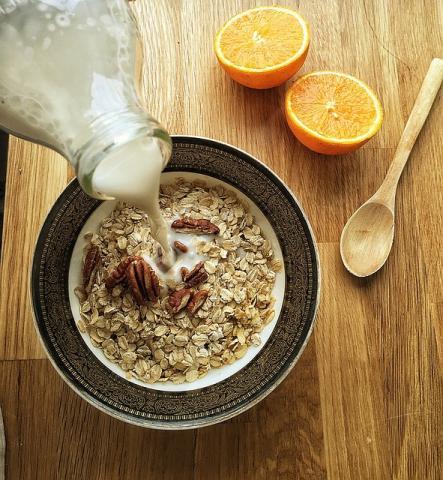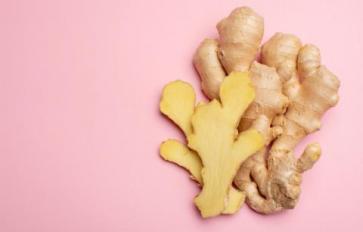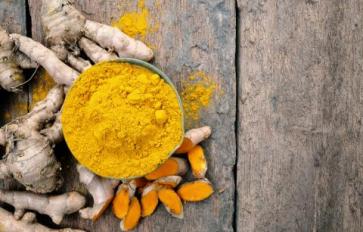
Why is it that pregnant women are revered and taken special care of, whereas as soon as the baby is born, the new mother is left to adjust to motherhood while all of the focus shifts to the new infant?
Yes, babies are adorable but honestly, the first 6 weeks of a baby’s life involves eating, sleeping, and an occasional drowsy smile. But the new mother’s first 6 weeks could be one of her roughest periods, her post-pregnancy body trying to recover from birth, possibly surgery, her womb shrinking back to size while her body produces liquid gold breastmilk to sustain baby in the outside world.
Add to this lack of sleep and, for some new moms, a touch of the baby blues, or even postpartum depression, and you have a lady in need of as much help as she can get.
Enter the concept of confinement.
While the term might seem outdated, a relic from bygone days, this traditional practice could be just what the doctor ordered for a new mom intent on a healthy recovery.
Having recently become a first-time mother myself, I experienced confinement in the Indian tradition, in the same way that my mother, aunts and countless cousins have before me. Over the years, I’ve seen many a new mom drink the bitter “huwa” water, in an attempt to ensure that her “insides are cleaned out” and that her new precious baby is spared from gas. But I’m getting ahead of myself.
What is confinement, really?
As soon as a new mom is ready to leave the hospital, the tradition in Indian culture, at least for Indians living in South Africa, is for new mothers to return to their maternal home where they will be cared for in the first 6 weeks postpartum, with an emphasis not only on helping her to adjust to life with a new baby, but also a strict diet that enables her body to bounce back and be adequately able to breastfeed and recover from surgery or natural birth.
This period of “confinement” is an important rite of passage for the new mother and new baby and is a useful tool that should be considered by all new moms, as the practice seems to have been abandoned by Western culture (if it really was part of the culture at all). Apart from Indian cultural practice, Chinese culture also has a very similar tradition.
While the new mom is not literally confined for 6 weeks (she can go out if she wants to) it is encouraged that she stay home and rest, bond with her baby and learn everything she can from her female relatives about what it takes to care for a baby.
The diet
In this period, the new mother is cared for by her own mother or other female relatives. The diet encouraged is not a diet in the modern sense of weight loss, but a diet for optimal maternal recovery and health. For example, the new mom cannot eat tomatoes or spicy foods if she has had a caesarean section (which is difficult for Indian women!), there is the drinking of “huwa water,” a tea-like drink made by boiling dill in water, which is meant to help the healing process, and drinking milk boiled with almonds and turmeric to stimulate breastmilk.
Most of the food cooked relies on the use of ghee (clarified butter) and often chicken bones are also cooked into soups to provide strength to the new mother. Indian spices and real whole foods are used to help the new mother to recover and help her to nurse her baby effectively.
There is a focus on “hot” foods, as tradition dictates that cold foods slow down the recovery process after birth. Hot and cold foods are meant in the sense of cold and hot in nature, not just cold and hot from outside temperature. The concept of hot and cold foods is also used in Ayurveda and other Eastern traditions. For example, dates are considered a hot food, while tomatoes are considered a cold food.
It’s not just about food though
Relatives pass down wisdom in caring for the baby and help in teaching the new mother how to bathe and change and burp the baby. There is also the relief of not having to cook, clean, or deal with visitors! A helping hand is great to ensure that the mother does not strain her back, bending to pick up the baby or change a diaper.
When I was in the hospital after the birth of my baby boy, I remember the shock and concern my midwife expressed when I asked to be discharged early. She worried that I would not cope, and urged me to make use of the support system that a hospital provides. What she didn’t realize was that I had more support and personal care at home than a hospital could ever hope to give me.
Some new or expectant moms may be wondering how on earth such a practice can be cultivated in a family that has no history of such a practice. It all comes down to community. If family members live far away, are unable or unwilling to assist, like-minded moms could form support groups to assist each other with confinement when babies are born. Alternatively, if you have the means, midwives can even be hired to assist.
Making the new mom a cup of tea, giving her a back rub or helping to tidy up are all small things that go a long way in assisting an exhausted and often overwhelmed new mother. If you’re expecting a baby, consider planning in advance to get the help you need to relax and recover in your confinement period. Look up some recipes for post-partum recovery, and get everything ready in advance so that whipping something healthful up in a jiffy is no problem once baby arrives.
Try out some recipes
What a new mother eats is important in helping her to recover and keep her breastmilk supply up. After checking with your doctor, why not try out some of these confinement recipes, to speed your way to recovery:
Huwa water (for postpartum recovery)
For a new mother, this drink is said to assist in helping the womb shrink back to size and assist the body in cleaning out any toxins left after birth. It is often drunk as a replacement for plain water. While it may be bitter, it is an age old traditional drink that is a staple in the Indian confinement diet and is said to assist in postpartum recovery.
Ingredients: dill seeds and water
Method: boil one tablespoon of dill seeds in a liter of water for 5 minutes. Allow to cool, and drink at room temperature. Make a fresh batch every day.
Almond Milk (for nourishment and strength)
A delicious mixture of warm almond milk is great for new mothers, not only because of its taste, but also as an aid to breastmilk production, and it also provides great nourishment. It is a tasty addition to a new mother’s confinement diet, but can also be drunk whenever you crave something rich and creamy.
Ingredients: ghee, fresh ground almonds and other ground nuts of your choosing, milk, honey. Optional: singhora powder (this ingredient can usually be found at an Indian spice shop)
Method: mix all ingredients except honey, while slowly bringing to a boil. Stir continuously until the mixture boils. Remove from the stove once boiling, and then allow to cool and sweeten with honey.
General tips
- Add ghee to your favorite chicken soup recipe for extra nourishment.
- Avoid strong spices and focus instead on fresh, quality ingredients.
- If you are breastfeeding, monitor the impact of what you eat on your baby’s digestion: for example, foods like corn, dairy or starchy foods may cause gas.







